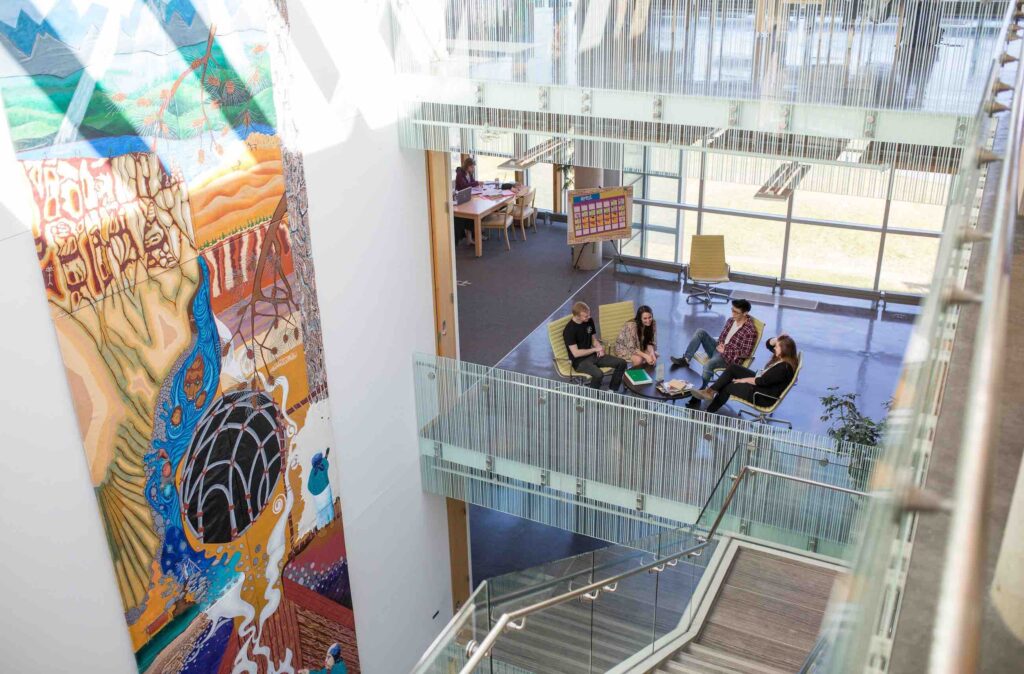
There are many opportunities for participating in research at TRU. Students can gain research experience via courses, awards offered by TRU’s research office, or paid research assistant positions.
Diversity and Inclusion Commitment:
Thompson Rivers University is strongly committed to hiring based on merit with a focus on fostering diversity of thought within our community. We welcome those who would contribute to the further diversification of our staff, our faculty and its scholarship including, but not limited to, women, Indigenous, Black and People of Colour, persons with disabilities and persons of any sexual orientation or gender identity. Please note that all qualified candidates are encouraged to apply, however applications from Canadians and permanent residents will be given priority.
Current positions: no current positions available at this time. contact: cgonzalez@tru.ca

TRU awards and grants
For a complete list of research opportunities, go to: undergraduate student research
Students can take part in research as research assistants. Keep an eye out for opportunities in labs. There is also the opportunity to win a research apprenticeship, where students get paid $3,000 to conduct research. For this you need a faculty mentor that is willing to apply for the award with you as the student researcher.
Make sure you approach a potential supervisor at least 3 months prior to the deadlines.
For more information please go to: RAs
Undergraduate Research Experience Award Program (UREAP)
The Undergraduate Research Experience Award Program (UREAP) is a $6,000 scholarship that can help you get started in your own original research. It is a way to improve your resume, increase your academic and professional success, and make your time in university more interesting and rewarding.
For more information please go to: UREAP
NSERC Undergraduate Student Research Awards Program (USRA)
TRU NSERC
NSERC USRA Portal
This award provides $6,000 funding from NSERC and an additional (minimum) 25% ($1,500) from faculty for undergraduate students in the natural sciences and engineering to engage in research over a 16-week period over the summer (May to August). These are competitive national-level awards (unlimited awards available for Indigenous Students). Students must discuss this opportunity with a faculty member they would like to work with. Faculty members who are authorized to independently supervise students may mentor.

International
- Visiting international research student program (up to 12 months)
Students must be enrolled in their institutions (in undergraduate or graduate programs) and registered as international students at TRU (so international fees will apply). For more information, please use the link: International research students TRU
General information for international students: TRUWORLD
> Full MITACS programs link here
- MITACS Research Training Award ($6,000)
This is an immediate and short-term opportunity for undergradaute and graduate students to undertake a 12-16-week paid research training internship. Mitacs and TRU have contributed equally toward this opportunity. These student-led projects are designed to enhance student research skills through interaction with faculty and hands-on research and training experience. Projects must begin no later than August 31. This award is competitive so if interested, the student must contact a supervisor early on prior to the deadline.
Check for more details and eligibility: MITACS terms of reference
- MITACS Globalink Reseach Award ($6,000)
link: https://www.mitacs.ca/en/programs/globalink/globalink-research-award
This award provides funding to support senior undergraduate and graduate student research project abroad. This is for joint research projects with academic collaborators for a minimum of 12 weeks to a maximum of 24 weeks abroad. Partner countries include Brazil, mainland China, India, Mexico and Vietnam. This award is competitive so if interested, the student must contact a supervisor early on prior to the deadline. Ask your collaborator or potential supervisor(s) for more information about deadlines.
Check for more details and eligibility: MITACS Globalink terms of reference
Note that the MITACS awards are likley not enough to cover costs of living in Canada.
Emerging leaders in the Americas program (up tp $ 11,000, 5-6 months)
Full link: https://www.educanada.ca/scholarships-bourses/can/institutions/elap-pfla.aspx?lang=eng